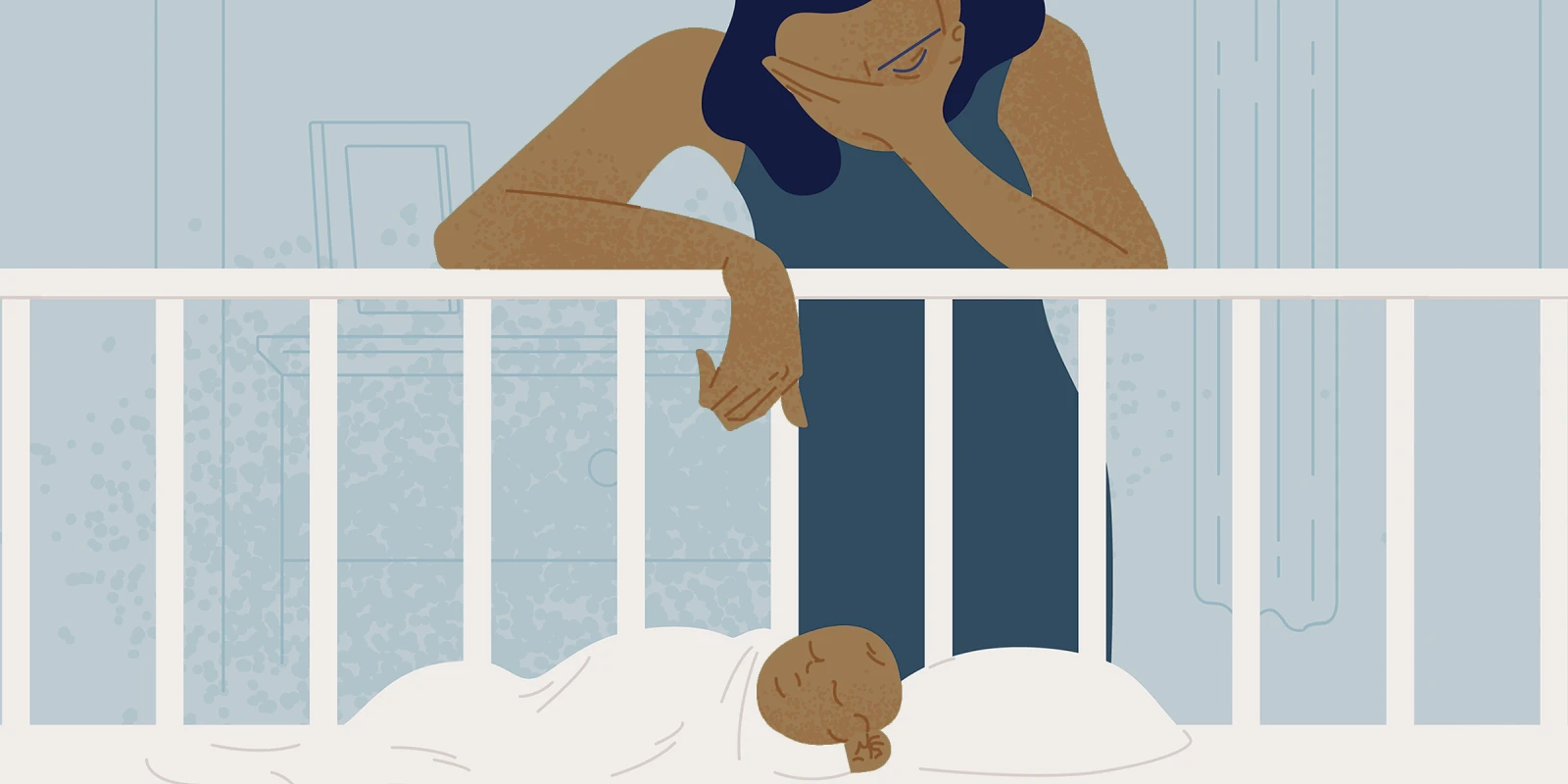As a physician, I expected a rather seamless transition from caring for patients to caring for a child. Instead, it was quite the opposite. Becoming a physician involves years of training and retraining, both before and after one is inducted into physicianhood. But becoming a mother happens overnight.
They say you can’t prepare for parenthood, but I still tried. In the nine months leading up to the birth of my first child, I read all the books, went to all the classes, ordered all the things. I exercised daily and consumed an organic diet of leafy greens and grass fed protein. I convinced myself that being a mom was instinctual and that childbirth and postpartum were natural, happening since the beginning of time. Despite a relatively uncomplicated pregnancy, overnight, I turned from feeling blissfully happy to vulnerably sick.
Three days after discharge, I woke up from sleep with an impending sense of doom. I could hear my newborn stirring in the background, about one hour after I had finally managed to settle her down. I nearly collapsed as I made my way to her crib and after five sleepless nights, I could no longer ignore the feeling that something was very wrong. I felt my head spinning and instinctively, as my medical training had taught me, I gathered my data. I stepped on the scale and took my own vitals. I was a few pounds shy of my pre-delivery weight, was tachycardic, and had a 101 diastolic blood pressure reading. I have postpartum preeclampsia, I thought immediately. My fingers furiously scrolled through my iPhone. If I didn’t do something soon, I was going to have eclampsia and then I would die.
These thoughts continued to run through my head as I sat in OB triage, tearfully wondering who would take care of my daughter when I was gone. The nurses ran serial blood pressures, drew my labs, and smiled kindly at me. They knew right away that I worked in health care and that this child was my first. Within a few hours, I was discharged home. My blood pressure readings had normalized and my labs were stone cold normal — I did not have postpartum preeclampsia.
Days later, I self-diagnosed with something else: postpartum anxiety.
Studies suggest that 1 in 8 women experience postpartum depression, and some say that postpartum anxiety is even more common than that. While symptoms of anxiety are often comorbid with depression, anxiety can also occur independently and may be relatively neglected. Among my confidants of new mom friends, subclinical postpartum psychiatric disorders are prevalent, especially when postpartum mood disorders are extended beyond depression.
Regardless of the DSM-5 diagnosis, the answer has always been pharmaceutical. But what this solution lacks is an understanding of the needs of postpartum women and the factors that contribute to postpartum mood disturbances. These factors include but are not limited to a lack of access to paid parental leave, spotty health care access in our nation’s many rural and urban maternal health deserts, no formal support for mothers beyond a perfunctory six week OB check up, and the societal expectation to immediately bounce back. The cause is not simply hormonal.
The reality is that many women suffer in silence, and with the suburbanization of American cities, women started becoming mothers in isolation. By living further from relatives, generational knowledge that traditionally was passed from mother to daughter was lost: what diet to increase milk supply, what ways to rock a newborn to sleep, what medicinal remedies to ease constipation. Instead of wisdom that was once readily available in the home, new moms now seek consultations outside the home. Lactation consultants, sleep consultants, home-safety consultants all charge top dollar in exchange for the promise of easing the newborn period. For many, the price is simply inaccessible and overwhelmed new mothers may not know where to look. For the rest, money is spent in search of the one thing that could ease the transition to motherhood: a community.
In order to create a better society and improve our health care system, we as a medical community need to start by caring more for mothers. This includes initiatives such as more robust and frequent postpartum visits, addressing gaps in postpartum care on a national level, an earnest investigation into maternal health issues, and a more serious attempt at reintegrating mothers into society at a more appropriate rate. The mothers who care for children raise our communities, and by neglecting the importance of maternal health, we as an entire society will continue to suffer.
Thea L. Swenson received a bachelor’s degree in engineering, product design from Stanford University and a medical degree from the University of Colorado. She is currently a resident in physical medicine and rehabilitation at Vanderbilt University and hopes to specialize in sports medicine. Thea was a 2022–2023 Doximity Op-Med Fellow.
Image by GoodStudio / Shutterstock






